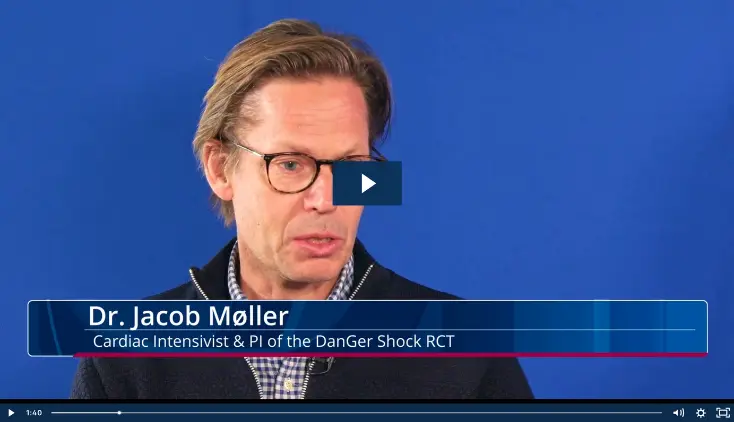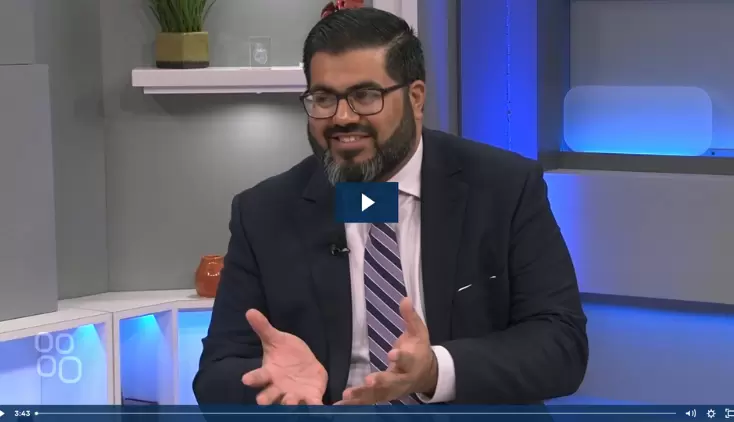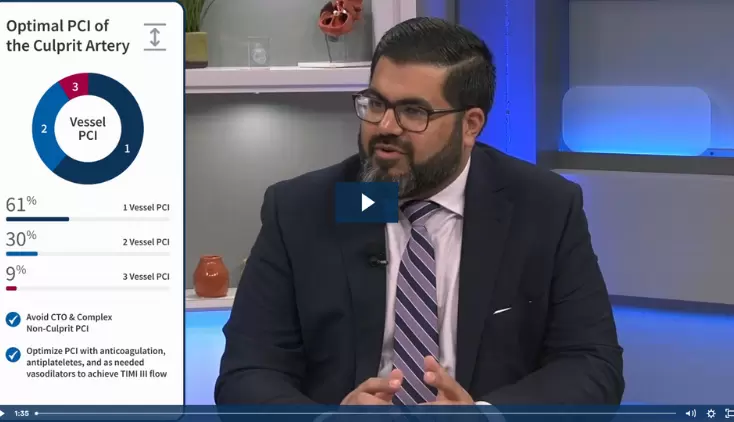Clinical Research & Data, AMI Cardiogenic Shock
81% Survival at 30 Days in a Multi-Center, Multi-Society Study of of AMICS Patients Supported With Impella® Heart Pumps in Japan
Junya Ako, MD, an interventional cardiologist and chair of the department of cardiovascular medicine at Kitasato University Hospital in Kanagawa, presented results of his new Japanese Registry for Percutaneous Ventricular Assist Devices (J-PVAD) study during TCT 2022. Dr. Ako's analysis included 593 consecutive J-PVAD patients with AMI cardiogenic shock treated at 109 centers in Japan between October 2017 and January 2020. Nearly half of the patients included in the analysis were treated with Impella heart pumps alone (n=293) and the other patients were treated with Impella heart pumps plus ECMO (ECpella) (n=300).
Results of this study show 30-day survival rates of 81% for AMI cardiogenic shock (AMICS) patients supported with Impella heart pumps.
The J-PVAD Registry is conducted by 10 Japanese professional societies, including the Japanese Circulation Society (JCS), and the data is independently monitored and shared with the Japan Pharmaceuticals and Medical Devices Agency (PMDA).
During his presentation, Dr. Ako explained that operators were trained on Impella heart pump best practices in patients with cardiogenic shock when the Impella heart pump was first introduced. Those best practices include:
- Early identification of cardiogenic shock and use of Impella heart pumps (80.1% of all AMICS patients receive Impella heart pump support within 6 hours from shock diagnosis)
- Initiation of Impella heart pump pre-PCI
- Use of pulmonary artery catheterization (PAC) and hemodynamic-guided decision making
- Minimal of use inotropes/vasopressors
In his analysis, patient characteristics were similar to - and in some cases even sicker than - patients in the National Cardiogenic Shock Initiative (NCSI) in the United States. Most patients (70%) were supported with Impella 2.5®, which was the first device approved in Japan. The remaining patients were treated with Impella CP®, Impella 5.0® or a combination of these Impella heart pumps. Median duration of support was 3.5 days for Impella 2.5, 4 days for Impella CP and 7.7 days for Impella 5.0. Patient, coronary and procedural characteristics were comparable to NCSI.
Results demonstrated favorable survival in all patients with 30-day survival of 80.9% in patients treated with Impella heart pumps alone and 45.7% in ECpella patients. Both groups of patients had significant improvement in left ventricular ejection fraction (LVEF) from pre-Impella insertion to removal: LVEF 35% pre-insertion to 44.7% at removal in the Impella heart pump alone group and 24.9% pre-insertion to 44% at removal in the ECpella group. Major adverse events in all cases were low: hemolysis (10.8%), hemorrhage/hematoma (7.6%), peripheral ischemia (4.4%) and stroke (1.3%).
“Following those best practices widely adapted in previous initiatives—including early identification of cardiogenic shock, pre-PCI Impella initiation, and hemodynamically-guided decision-making, which was applied in almost all patients in this registry may have been associated with better clinical outcome in this clinical registry,” Dr. Ako concludes.
As of August 2022, Japan had 211 qualified Impella heart pump centers and more than 6,500 patients have been treated with Impella heart pumps in Japan.
IMP-3661


